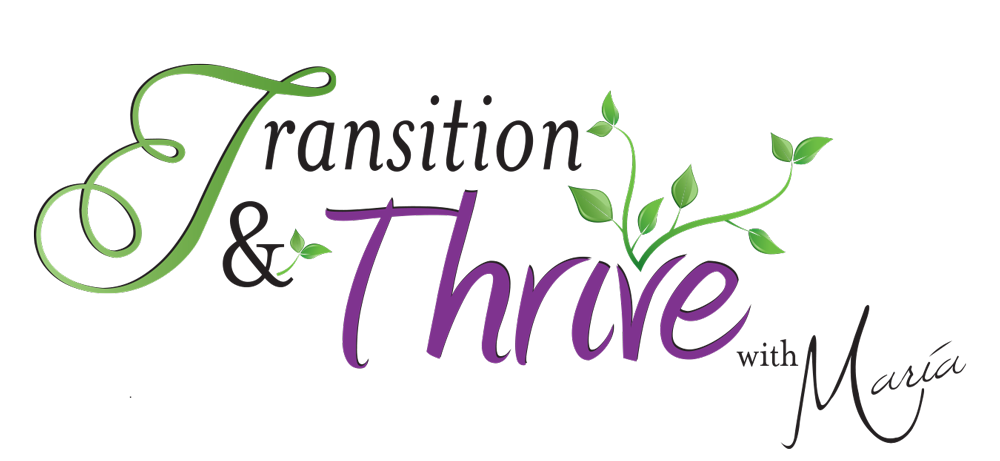The best way I know to cope with life’s ever-changing patterns is to create a personal survival guide. A.K.A. a Self-care Program. Life happens, sometimes unexpectedly. It makes sense to be prepared, as best you can, when it does. Because, when you’re not prepared, life can swoop you up and carry you along for the ride—and it may not be pretty.
Case in Point
A friend recently took a sabbatical from work for a couple of months to remove herself from the stress of the job and change her scenery. I’ll call her Kris. She and her husband, Pete, got in the car and went on a road trip. Kris’ intention was to use the distance and time to explore options and get quiet and clear about what she wanted to do next in her life.
Kris was facing some big decisions. Was it better for her to retire or just reduce her work hours? Should they sell the house and downsize? Move to another area of town or move to another state? Choices that offer lots of options. Consequently, she wanted to be clear when she made those decisions.
At their first stop to visit old friends, Kris found out that one of her friends was going through a terrible relationship issue that turned her world upside down. Kris was distraught and worried for her friend. As a result, she took on the negative energy that surrounded her visit.
Next stop was to visit family. Kris’ sister is terminally ill, and Kris knew this visit would be hard—but she wasn’t prepared for how hard. She got wrapped up in the differences of opinion about how to care for her sister and it caused Kris to worry about the lasting effect it would have on the family relationships.
Neither of these situations was conducive to quietly assessing her own circumstances and gaining clarity on what she should do next. Kris got carried along for the ride.
Kris would have benefited from having established a self-care program to help get her through these visits. A plan for managing the stress she was feeling would have helped her cope with these life events.
When a Self-care Program Can Help
In Kris’ case, she had stressors going on in several areas of her life. In her career, the environment she worked in was toxic. Personally, she was dealing with major life-changing choices about her relationship, retirement, and relocation. A dear friend needed support and her family was learning how to be there for each other while saying goodbye.
If ever having a self-care program was needed, Kris’ situation is a shining example.
With all this stress, anxiety and worry building up, it is little wonder that Kris felt overwhelmed yet again. So much for taking that sabbatical to relax, clear her head and listen to her heart.
In a worst-case scenario, this kind of emotion piling up can cause you to lose your composure and self-control, which could lead to a breakdown.
Although this may seem dramatic, what Kris was going through is not all that uncommon. Life has a habit of coming on fast and furious, one major blast after another. Just when you think you’ve got things under control, the other shoe drops. Have you ever experienced that?
This is when your plan can be put into action—if you have one. Knowing what to do to take care of yourself when life drops a bomb is a key to managing through it.
What Comprises a Good Self-care Program?
The basic recipe is to fill your program with activities that make you feel better. To be clear, your personal self-care program will be filled with coping mechanisms and survival strategies to help you deal with the stress, pain, and changes that life throws at you.
UCLA’s Semel Institute for Neuroscience and Human Behavior says coping strategies “are the behaviors, thoughts, and emotions that you use to adjust to the changes that occur in your life.”
That’s straightforward enough. The best part is you get to choose what those coping mechanisms are. Either they are positive, so they lift your spirits, provide relaxation and help you feel grounded. Or, they are negative coping mechanisms, which will do you more harm than good. Here are just a few examples of each so you can decide which ones you would rather include in your plan:
Negative Coping Mechanisms
- Burying yourself in work
- Deluding yourself that things are not that bad
- Indulging in substances to ease the pain (alcohol, drugs, meds, eating)
- Passively taking on the victim role
- Participating in abusive behavior (physical, verbal, emotional, spiritual)
- Wearing a mask pretending you are okay
- Giving so much of yourself that you have nothing left
- Withdrawing from the situation or life in general
Positive Coping Mechanisms
- Staying in the moment; practicing mindfulness
- Participating in activities which manage your stress
- Intentional breathing
- Using grounding skills
- Walking in nature
- Positive self-talk
- Playing (with children, pets, friends)
- Spending time alone to think, feel, and reconnect with self
- Talking it out with someone you trust (coach, clergy, friend)
And there are so many more of each, but this should give you an idea of what kind of strategies you want to fill your self-care program with.
How Can Having a Self-care Program Help You?
You can’t prepare for every event, that’s for certain, except the ones you know are coming. For instance, that empty nest or wedding, which may require a lot of self-care to get you through. On the other hand, unexpected events are the toughest. Of course, some life events are going to knock you down for the count with grief, sadness or unexpected loss. And this may last for a while, so what will you do to make sure you don’t get stuck in a place where you don’t want to stay forever? Your self-care program can be your lifeline.
What does it mean to be prepared with a self-care program before life happens? It means to decide in advance how you want to behave—how do you want to show up?
Your plan can include what makes you feel better about yourself when … you fill in the blank. Knowing who you can talk with is a start. When the stress is too much on any given day, what if you knew that taking a brisk walk to your favorite place made you feel more relaxed and able to cope? What if journaling about what’s going on, how you feel about it, and what you want to happen helped you to get things off your chest, so you won’t explode?
When you have a plan like this, it will help you to cope with life’s inevitable upside-down moments because you know that there is something positive you can do to manage through them. Create a self-care program that will give you some peace of mind so that, when life happens the next time, you will be more prepared to face it head-on.
Step Onto Your Bridge
When life-changing moments flip your world upside down, I create a bridge so you can turn chaos into calm. You build resilience and learn to live a life guided by your own values and vision. Are you ready to take the first step onto your bridge? Do you want to explore how change can impact you? Would you like to learn how to move through it with more dignity and grace? I’m here to help. Get my free ebook From Darkness to Light: Learning to Adapt to Change and Move Through Transition.

